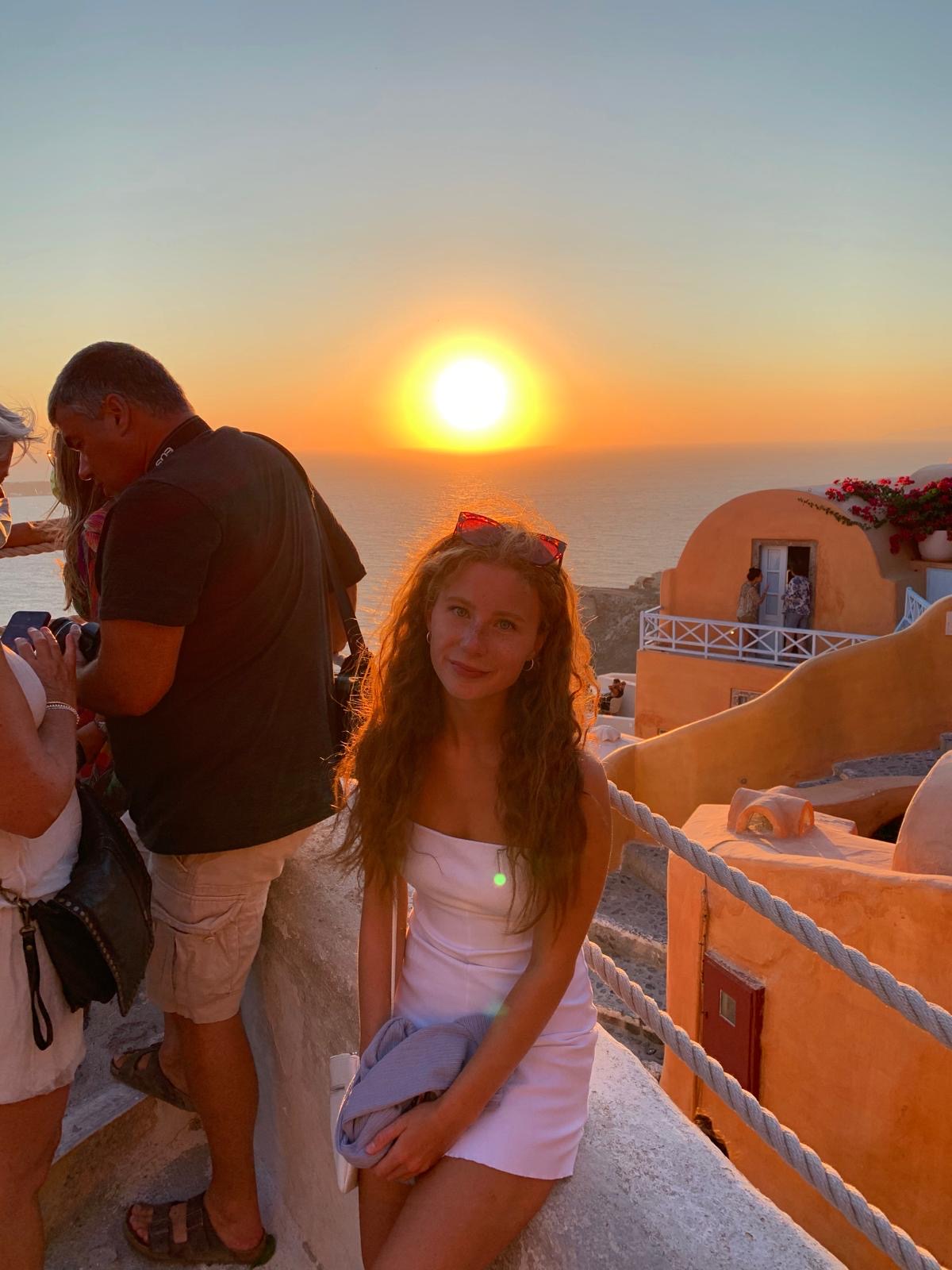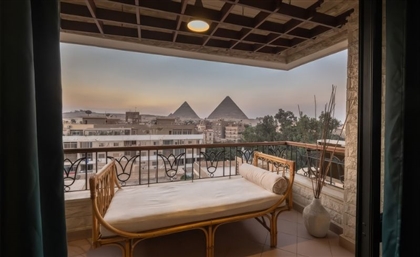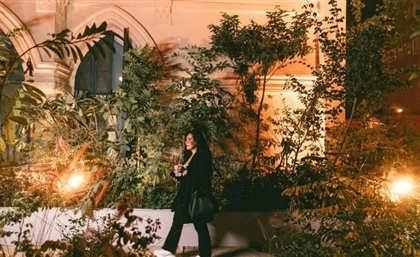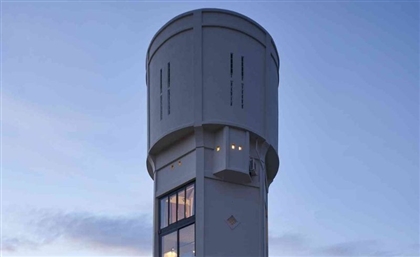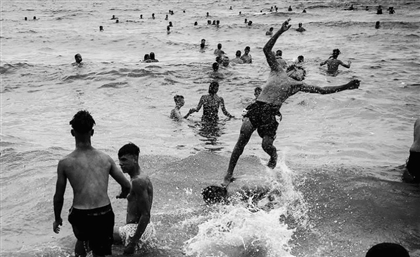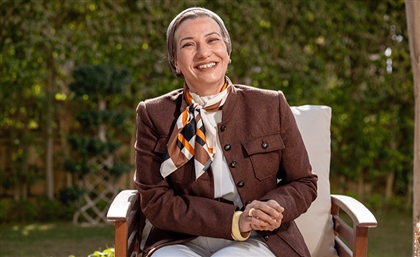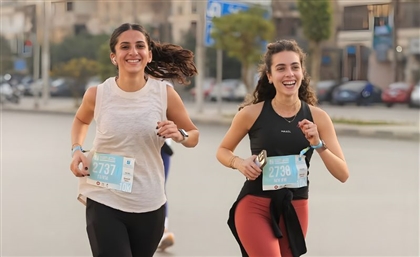Meet Cairo’s 75-Year-Old Ultra Runner Who Keeps the City Moving
Inspiring amateur and pro runners alike across Cairo, Zohra Merabet has kept the city’s running community on its toes for over 100 ultra-marathons.

During my first week in Cairo almost a year ago now, I made what seemed like a very bold decision to lace up my shoes and embark on a run around Zamalek. The dogs, the traffic, the staggering heat and the sheer chaos of the city that I have grown to appreciate was overwhelming at the time. I saw no other runners. Just as I was about to turn back, dizzy and defeated, an older woman appeared and, quite literally, picked me up.
“Are you new here?” she asked, flashing a smile that told me everything was going to be okay.
The woman proceeded to show me her favourite route around the island, teaching me the ways of the city, telling me about her incredible life story in the process. Her name is Zohra Merabet, a 75-year-old ultra-marathon runner, a Cairo legend, and someone I’m now proud to call a dear friend.
Gradually integrating into Cairo’s running community, I quickly came to learn that the situation I described above is a widely shared experience. I’ve lost count of the number of people who recall a time when Zohra has picked them up, who cite her as their inspiration to enter a race, push out of their comfort zone and just keep going, and in a running and non-running context.
I’ve lost count of how many people name her as the very reason they run - and just as many who insist someone has to write about her, make some sort of film about her life. When I told her I was thinking of writing this piece, she rolled her eyes, grinned, and said, “Well, I’m really not that interesting, you know.”
At 75, she has run more than a hundred marathons and ultramarathons and shows no sign of slowing down. Every single day, for around 30 years, she has laced up her shoes and run. When people marvel at her stamina, especially in light of her age, she shrugs and offers the simple resolution: “Running is a source of energy.”
This energy has carried her through a life of constant motion. Born in Marseille to Algerian parents, Zohra studied engineering and began her career in development. “Since 1983, I’ve basically pitched my tent in Cairo, but I’m always on the move,” she tells CairoScene. Over the years, she’s lived and worked in Sana’a, Jerusalem, Beirut, Amman and Paris. “Whenever I look out the plane window as I’m landing somewhere, I’m scanning the ground for where I’ll run the next morning. That’s always my first thought: how I’ll use my run to explore,” she chuckles.
For Zohra, running isn’t fitness - it's orientation. It’s how she grounds herself after euphoric highs, and how she grieves through unbearable loss. It’s her way of meeting the world, again and again.
Between 1976 and 1983, Zohra lived in Sanaa, Yemen, working on infrastructure development. “That’s when I really started taking running seriously. I was helping build the roads I ran on so it became entwined with my work - a way to understand the place,” she says. The mountains surrounding Sana’a turned her into a trail runner: “I was never a morning person, but I started waking up early to run. I’d come into meetings feeling like I’d already lived a whole other experience before the day began. I became hooked.”
After Yemen, she landed in Cairo. Her relationship with the city, like her life, is constantly shifting, shaped through her running. “Every single run teaches me something new about this city. I discover corners I’ve never seen before.” Cairo, in the early morning hours, offers her a different kind of intimacy. “You peel back the layers, you see the city for what she really is, before the world wakes up. People from all walks of life smile at you. I look at the buildings - how their shapes change, how time leaves its mark. There’s something magical about Cairo when she’s quiet,” she says.
Despite the tangled cacophony of barking dogs, blaring horns, and shouted vecchias echoing through this city of over 10 million people, Zohra somehow finds solace in it all. “Running early in the morning, for me, is how I survive this city. Even though, as you know, Cairo is crazy, I'm just always curious about it. I find a strange peace here.”
Despite the rapid pace of the city and its constant physical change, Zohra’s morning run remains a constant in her life: “It’s very simple: I usually wake up at 5:45. I feed my cat and give her a little bit of love and then I get dressed, sometimes I do a bit of work. But then I go out. As for the route I take, I often repeat the same roads and streets, but I always always find something new. The city is never the same twice.”
One of the most common assumptions Zohra hears is that her commitment to running is primarily related to fitness or appearance. She bristles at this. “Running, for me, has nothing to do with physical appearance. It’s about strength, peace and power,” she says. “I never, ever talk about how it changes how you look when I’m encouraging someone to run.”
Her encouragement tends to be a two-way exchange. “Others encourage me and inspire me as much as I inspire them. The first step is always to tell them they can do it. If I can do it they can.” She thrives off seeing others reach new milestones. “I love to see others achieve. I went to Amsterdam recently to support a friend running her first marathon. I was with her all the way to the finish.”
Zohra doesn’t just run with people. She runs for them. To them. Because of them. Ask anyone in the community, and they’ll tell you.
Raïd Gamal-Eldin - founder of Egypt’s first trail running community, Wadi Ibex - recounts the time when, during a multi-stage ultramarathon in Wadi Rum in 2019, Zohra carried him to the finish. “She saw that I was flagging at the end of the second day,” Gamal-Eldin shares. “Her words, her encouragement gave me the fuel to keep going, she has this amazing quality that makes you trust everything will be okay. She radiates resilience.”
Local runner Aziza Ibrahim had never set foot on a trail before meeting Zohra. Intimidated by the idea, she believed trail running was the domain of seasoned endurance athletes. “I spoke to Zohra, and she told me it was all in my head,” Aziza recalls. “She said I could do it and that she’d run with me in the wadi. So we did, and that was it.” Today, Aziza is a confident trail runner who thrives off-road, racing across landscapes she once found daunting. “It’s all because of Zohra. There’s a certain energy about her, she’s a true inspiration, especially for women.”.
Ashley Gramolini, an expat teacher, shared a similar experience during her time in Cairo: “Zohra was the one who encouraged me to run my first ultramarathon. I never would have even considered it without her. She has this way of making you believe you can do it, on the trail and in life.”
Omar El Sawy, professional trail runner and founder of Egyptian trail running company UltraBedu, had long heard whispers of Zohra’s legend in Cairo’s running circles, but it wasn’t until a 66km desert race in Fayoum that he truly understood her impact. “There comes a point in every ultramarathon when everyone starts to fade,” he says. “But there she was, steady pace, smile on her face.” Drawn to her calm presence, Omar ran alongside Zohra for a long stretch, simply listening to her life story. “I was amazed. On the trail and beyond it, she’s become a real source of inspiration for me.”
For Zohra, running is a discipline of freedom, of presence and resilience. Through it, she’s taught countless others not just how to run, but how to move through the world boldly, with curiosity, and on their own terms.
Countless people have drawn strength from Zohra’s resilience, her calm presence, her way of seeing the world. When asked about her proudest achievement, she doesn’t cite medals or personal bests. Instead, she offers something simpler: “Every time I leave my house and start running, I’m proud.” For Zohra, pride isn’t reserved for the extraordinary, it’s found in the quiet, repeated act of showing up. Just as running is her daily source of energy, she’s become that same force for so many others.
“I just tell people they can do it. If I can, they can. You don’t need all the high-tech gear. You don’t need anything, really. Just your will. There’s a runner inside of everyone,” she says.
It’s not just her own milestones she celebrates - it’s everyone else's. She lights up when she talks about others crossing finish lines, stepping outside their comfort zones, finding strength they didn’t know they had.
At the end of a race, which for Zohra, is often upwards of 50km and takes hours of constant physical effort, the finish line - when biologically, physically, her energy is depleted, that’s when she feels the most alive. “The energy comes for me when I can say I’ve done it. At the finish line, I feel like I can dance and I do,” Zohra says. That’s not a misquote - after a 10 hour race, Zohra doesn’t collapse. She dances, celebrates, rejoices. She keeps moving. “I’m always ready to dance,” she chuckles.
From Zohra, we learn that persistence doesn’t always come in grand gestures. Sometimes, it’s simply the act of putting one foot in front of the other, day after day. The finish line, for her, isn’t an ending but a quiet commitment to keep going, even when no one’s watching. In this loud, unruly, flamboyant city, that quiet determination stands out all the more.







